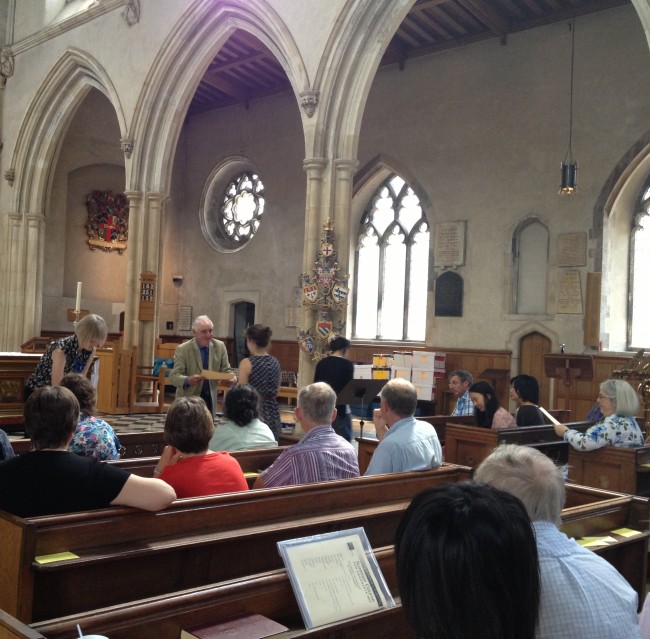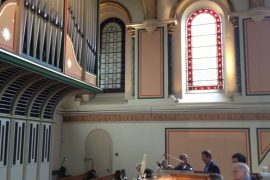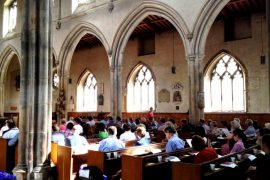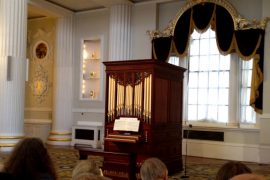picture: A panorama of St Giles – Chancel organ on the left, Grand organ on the right
We’ve had our student recital, our certificates, said thank you to our teachers, and are heading back home to our solitary organ benches. It’s been an intense few days, and some of us were definitely losing the edge by yesterday evening. I lurked at the back in the last class of the day, hoping not to be picked on for Advanced Keyboard Skills; my friend Lorna was momentarily puzzled by a handout which told her to ‘avoid using manual to pedal coupler in music before 6pm.’*
What sticks most in my mind right now? – that sometimes you can only understand something by experiencing it.
The practice in early English and French churches, of having separate organs all over the building, used for different parts of the service, seemed odd to me. But today we did a Choral Eucharist service at St Giles with me accompanying the choir for the service music (Merbecke) on the small Chancel organ, and the hymns and voluntaries being taken by other students on the Grand organ at the other end of the church. And it seemed a very natural arrangement.
Likewise I had never really understood the practice of alternatum – at its stylistic height in the French Catholic Church of the late seventeenth century. Why would you want to replace a verse of the Mass or Vespers with the organ playing a verset, in alternation with sung verses by the choir? In Tim Wakerell’s St Paul’s recital on Thursday he set the de Grigny Ave maris stella into context, alternating the four movements with a cantor singing verses from the Marian Vesper hymn of the same name. And although I can’t quite explain why, again, it did make a great deal of emotional sense.
*1800







Thank you for your lovely playing in the services and concert, Morwenna. It was a great week in which I learnt a lot from some very fine musicians. Now it’s back to earth and ordinary life again.
Hope to meet you on an RCO course again. Best of luck with the RCO exams.